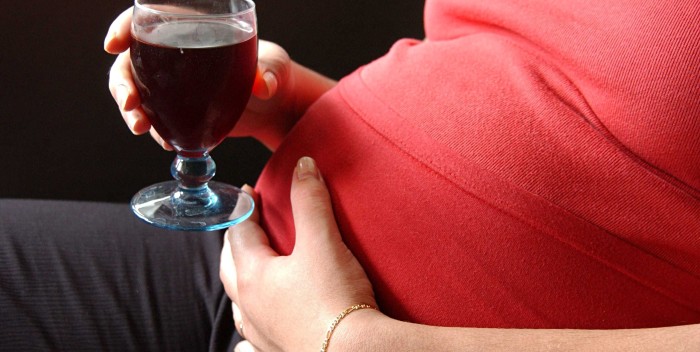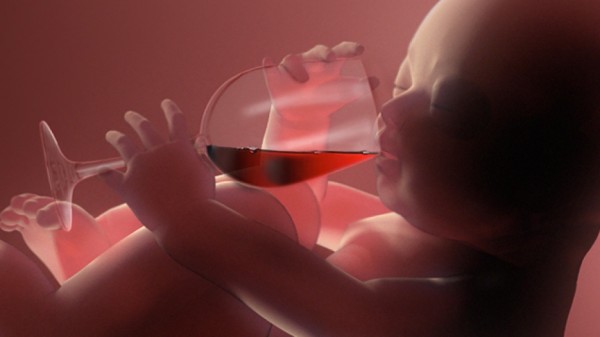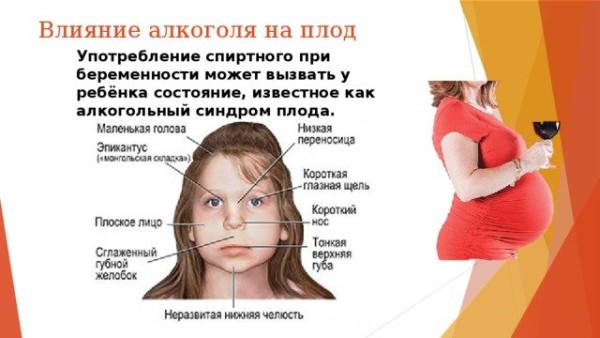Is alcohol acceptable during pregnancy?
The inadmissibility of drinking alcoholic beverages by a pregnant woman has been talked about for a long time. However, there are still people who believe that alcohol in "moderate" doses will not harm the baby's health. The life experience of acquaintances is usually given as an argument.
Content
Alcohol in early pregnancy
At the initial stage of pregnancy, a woman is usually not yet aware of her new condition. Anything can happen in life, and in the very first days after conception it may happen that the expectant mother drinks alcohol. In this case, alcohol is not yet able to greatly harm the unborn child.
The danger of alcoholic beverages in the first days after fertilization is that alcohol provokes increased secretion in the cavity of the fallopian tubes. This can make it difficult for the fertilized egg to travel to the uterus. As a result, there is a risk of developing an ectopic pregnancy. But the alcohol that has entered the mother's body at this time has no effect on the process of dividing the egg.
Serious disorders in the development of the embryo from consumption alcohol may develop after the placenta begins to form. This occurs approximately 12 days after fertilization. From this moment on, the future baby and his mother will have a general blood circulation, and all the poison that enters the mother's body will inevitably affect the development of the embryo.
Is alcohol possible during pregnancy
Almost all studies confirm that even small doses alcoholic beverages negatively affect the human body. The decomposition products of ethanol pollute the blood, provide an additional load for the liver and organs of the excretory system. Being quickly absorbed in the stomach and intestines, alcohol negatively affects the work of all internal organs.
The constant use of alcohol causes many diseases and dangerous deviations, for example, cirrhosis of the liver, stroke, peptic ulcer disease, impotence and dementia.
As for the body of the expectant mother and the health of the embryo, the consequences can be very serious. Therefore, doctors are unanimous and categorically prohibit the use of alcoholic beverages during pregnancy.
Harm of alcohol during pregnancy
Ethanol entering the mother's body affects the development of the baby in several ways:
- Ethyl alcohol penetrates directly into the body of the unborn child and is able to cause the development of pathologies of its organs.
- Entering a woman's body alcohol destroys all internal organs. This inevitably affects the health of the fetus.
- Alcohol has a negative effect on the placenta and reduces the supply of nutrients to the fetus.
The greatest harm alcoholic drinks it is brought in the first third of pregnancy. At this time, all organs of the child are just beginning to develop and any harmful substance entering the mother's body can have a negative impact on this process, causing complex systemic disorders. Therefore, it is in the first trimester that it is strictly forbidden to take any alcoholic beverages.
During the second third of pregnancy, the organs of the unborn baby are already finishing forming. The process of their improvement begins. But even at this time, you cannot take drinks with alcohol. This can cause disorders and deviations of the central nervous system of the child and his appearance.
The last third of pregnancy is characterized by the fact that the baby finishes the development of all its internal systems. Drinking alcohol during this period can harm the child's nervous system, provoke premature birth.
The consequences of alcohol during pregnancy
A pregnant woman should understand that reluctance to quit using alcoholic beverages affects the health of her unborn child in the most serious way. With the constant use of alcohol by the expectant mother, the baby is most likely to be born with fetal alcohol syndrome. This deviation is not treatable and the child will remain disabled for life.
Deviations are manifested in the child's appearance, the structure of internal organs and behavior. Most often, children with ASD have abnormal brain formation, impaired brain structure, mental retardation, and behavioral disorders.
At birth, children with ASD are underweight and underweight due to a lack of nutrients in the prenatal period.
There are deficiencies in the development of the skull and face. Most often they are expressed by cleft palate or cleft palate. A child may have an undeveloped labial groove, a border on the upper lip, narrow and short eyes, and a wide and flattened nose bridge.
The structure of the body and internal organs is also incorrect: there may be defects in the development of the external genital organs, incorrect development of the joints, disorders in the formation of the limbs. Moreover, the degree of injury depends entirely on the frequency and amount of alcohol consumed.
In the future, a child born with ASP will definitely experience problems with social adaptation. Such children are distinguished by poor eyesight and hearing, are not able to memorize information and fix attention, they are poorly trained and have behavioral disorders. Teaching children with ASD is impossible without the use of special techniques.
The inability to control emotions and take responsibility for their own actions often forces children with ASD to commit antisocial behavior. They need constant social protection. Almost 90% of children born to alcoholic mothers themselves become alcoholics in the future. This is due to the fact that the child develops a need for alcohol... After birth, the lack of a constant supply of ethanol drowns it out. But when even a small amount of alcohol enters the body, it usually causes the rapid development of alcoholism.






